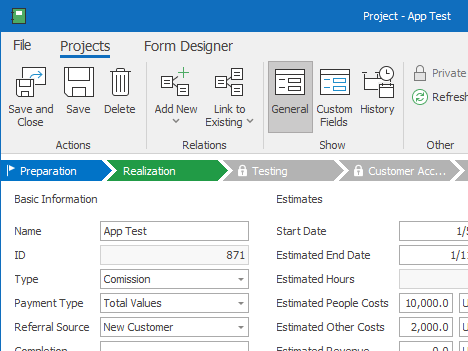e-Way bills have become crucial in facilitating the movement of products while maintaining tax compliance in an era of digital transformation and changing tax legislation. However, each business has particular needs and difficulties that may not always be met by general-purpose e-WayBill software. Here, the power of customisation is put to use. This article delves into the advantages and relevance of customising e-Way Bill software to satisfy industry-specific requirements.
Understanding Industry-Specific Needs
Different industries function with different rules and guidelines. Managing a large volume of e-WayBills daily may be necessary for logistics and transportation. At the same time, additional compliance data may be needed in the pharmaceutical industry. Businesses can match e-WayBill software with their industry needs and meet their specific difficulties and needs by customising it.
Tailored Data Fields
The flexibility to add or edit data fields is one of the main benefits of customising e-WayBill software. Industries frequently need particular data that may not apply to others. For instance, the healthcare sector might need to include advice on temperature-sensitive storage for some medications. Customised fields guarantee that all necessary information is accurately recorded, lowering the possibility of mistakes and non-compliance.
Industry-Specific Compliance Rules
Compliance with tax and regulatory requirements varies greatly amongst industries. e-Way Bill Software customisation includes computations and compliance criteria customised to the industry. This minimises the possibility of fines and audits by ensuring that the software generates e-WayBills that comply entirely with the particular tax legislation regulating that industry.
Integration with Industry-Specific Software
Many sectors rely on specialised software for various tasks, including order processing, quality control, and inventory management. These sector-specific software programs can be effortlessly integrated with customised e-WayBill software, enabling a more comprehensive and effective process. Data may smoothly transfer between systems, decreasing errors and the need for manual data entry.
Customised Reporting
Many businesses frequently need specific reports to monitor operations and follow set criteria. Customised e-WayBill software can produce reports for an industry suited to its requirements. Businesses can learn more, make better decisions, and uphold compliance.
Scalability
Businesses may adjust their e-WayBill requirements as they expand. Scalable custom software can add new functions or data fields as required. The software’s versatility ensures that it stays in line with the changing demands of the sector.
Businesses seeking to improve productivity, accuracy, and compliance should consider tailoring e-WayBill software to meet industry-specific requirements. Businesses may ensure that their e-WayBill procedures effortlessly comply with industry norms and standards by customising the software to their particular sector’s demands. In a market undergoing rapid change, customisation enables industries to navigate the complexities of e-WayBill compliance while adapting, growing, and maintaining their competitive edge.
FAQs-
Why is an e-way bill necessary?
The Government may require that the vehicle’s driver transporting any consignment of products with a value more than a specific amount has the necessary paperwork and equipment. In certain prescribed instances, the e-way bill must be carried for the consignment of goods according to Rule 138 of the CGST Rules, 2017.
Who can create an electronic waybill?
As a registered individual or a transporter of the products, the consignor or consignee may produce the e-way bill. The unregistered transporter can register on the common portal and create an e-way bill to transfer products on behalf of his customers. For their usage, anyone can sign up and create an electronic waybill for the movement of products.
Can you change or update the e-way bill?
The e-way bill cannot be modified or changed once it has been produced; only Part B can be updated. However, if incorrect information is used to generate an e-way bill, it can be cancelled and generated again. After the generation time, the cancellation must be made within twenty-four hours.
Can I extend the e-way bill’s validity?
Suppose the consignment does not arrive at its destination within the validity period owing to exceptional circumstances such as a natural disaster, problems with law and order, a delay in trans-shipment, a vehicle accident, etc. In that case, one may prolong the validity of the e-way bill. In addition to extending the validity time, the transporter must provide a thorough justification.







